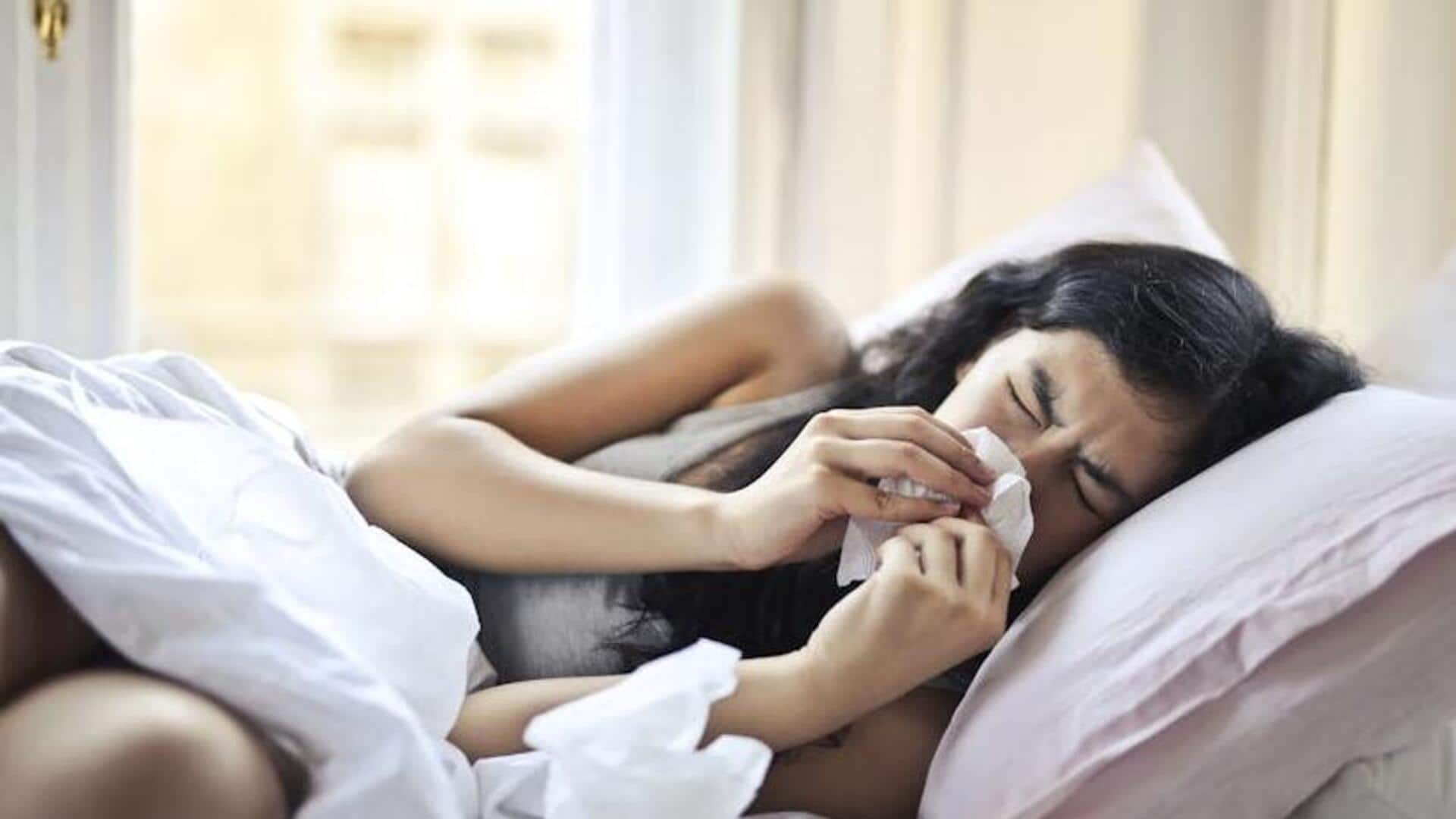
Alleviating hay fever with herbal nasal rinses
What's the story
Millions of people suffer from hay fever (allergic rhinitis) during high pollen count seasons. This common condition results in symptoms like frequent sneezing, blocked or runny nose, and itchy eyes. Although over-the-counter medications are often used to manage these symptoms, herbal nasal rinses provide a natural, side-effect-free alternative that can be just as effective. This article details various herbal remedies that can be used to alleviate hay fever symptoms.
Herb selection
Choosing the right herbs for nasal rinses
In choosing herbal nasal rinses for hay fever relief, opt for herbs with anti-inflammatory and antihistamine properties. Chamomile, nettle leaf, and eyebright are three traditional choices for alleviating allergy symptoms. Chamomile calms irritated mucous membranes in the nose and throat. Nettle leaf inhibits histamine production in the body, and eyebright relieves watery eyes and nasal congestion.
Preparation
Preparing herbal nasal rinse solutions
To make a herbal nasal rinse, always start with distilled or boiled water to ensure it's safe. Add a teaspoon of dried chamomile, nettle leaf, or eyebright to a cup of hot water. Let it steep for 10 minutes, then strain out the herbs. Cool it down to lukewarm before using it in a nasal rinse bottle or neti pot.
Routine
Frequency and timing of nasal rinsing
To effectively manage hay fever symptoms with herbal nasal rinses, regular and consistent use is crucial. You should perform the rinse one to two times daily during high pollen seasons or when experiencing acute allergy symptoms. Rinsing in the morning removes allergens that have built up overnight, while rinsing in the evening eliminates allergens collected throughout the day.
Safety
Safety considerations and tips
Although herbal nasal rinses are typically safe for most individuals when properly prepared with clean water and pure herbs, those with certain medical conditions or on specific medications should always seek advice from their healthcare provider. Further, it is crucial to always ensure that any equipment utilized for nasal irrigation is properly sterilized after each use to avoid infections.